Toyota Hilux VS Porsche Taycan – Specs, Efficiency & Price Comparison
Which model is the better choice – the Toyota Hilux or the Porsche Taycan? We compare performance (204 HP vs 1034 HP), boot capacity ( vs 407 L), efficiency (9.70 L vs 16.70 kWh), and of course, the price (39800 £ vs 87900 £).
Find out now which car fits your needs better!
The Toyota Hilux (Pickup) is powered by a Diesel MHEV or Diesel engine and comes with a Automatic or Manuel transmission. In comparison, the Porsche Taycan (Coupe) features a Electric engine and a Automatic gearbox.
When it comes to boot capacity, the Toyota Hilux offers , while the Porsche Taycan provides 407 L – depending on what matters most to you. If you’re looking for more power, you’ll need to decide whether the 204 HP of the Toyota Hilux or the 1034 HP of the Porsche Taycan suits your needs better.
There are also differences in efficiency: 9.70 L vs 16.70 kWh. In terms of price, the Toyota Hilux starts at 39800 £, while the Porsche Taycan is available from 87900 £.
Compare all the key specs now and find out which model fits your lifestyle best!
Toyota Hilux
The Toyota Hilux has long been celebrated for its remarkable durability and reliability, making it a favourite among those needing a robust vehicle for rugged terrains. Known for its unyielding performance, the Hilux combines practicality with a surprisingly comfortable driving experience, both on and off the road. With its distinctive design and advanced safety features, it continues to be a versatile choice for adventurers and professionals alike.
details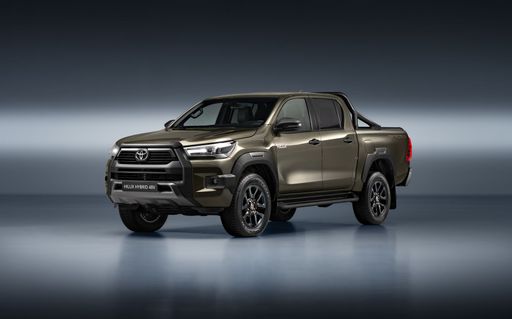 @ toyota-media.de
@ toyota-media.de
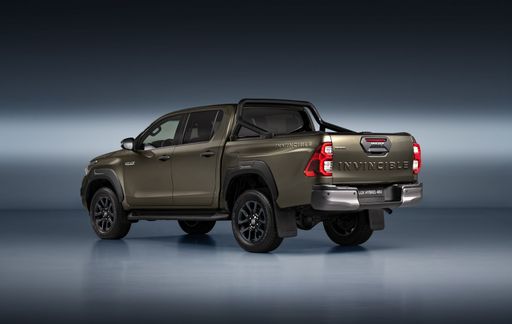 @ toyota-media.de
@ toyota-media.de
Porsche Taycan
The Porsche Taycan redefines the electric vehicle landscape with its stunning design and thrilling performance. With its smooth lines and athletic stance, this four-door sports car captures attention while delivering an exhilarating driving experience. Inside, the Taycan boasts a luxurious and high-tech interior, seamlessly blending comfort and cutting-edge innovation.
details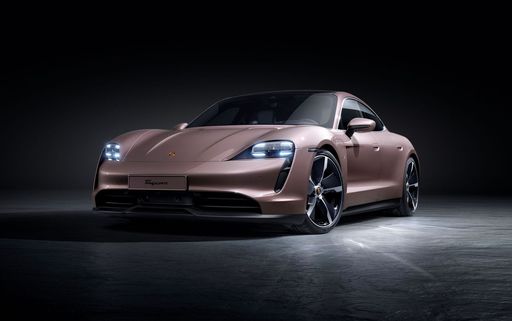 @ Porsche
@ Porsche
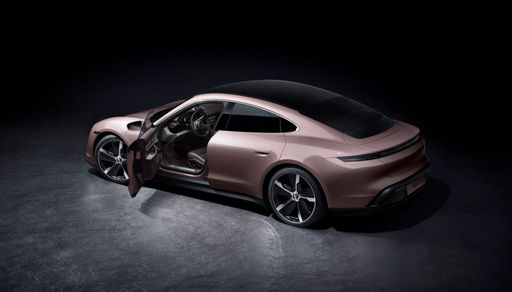 @ Porsche
@ Porsche
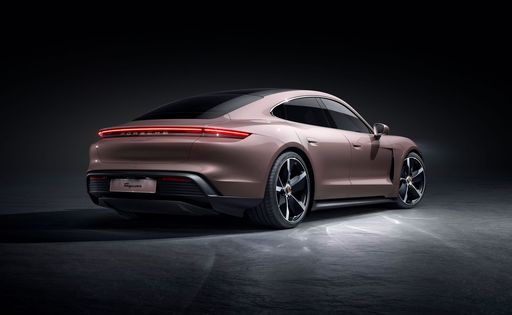 @ Porsche
@ Porsche
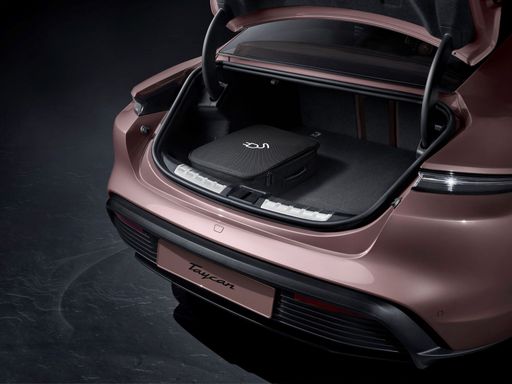 @ Porsche
@ Porsche
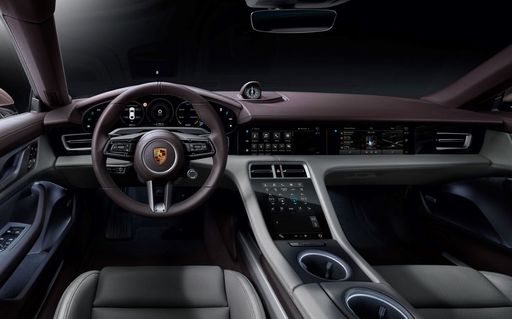 @ Porsche
@ Porsche

|

|
|
|
|
Costs and Consumption |
|
|---|---|
|
Price
39800 - 56200 £
|
Price
87900 - 206700 £
|
|
Consumption L/100km
9.7 - 10 L
|
Consumption L/100km
-
|
|
Consumption kWh/100km
-
|
Consumption kWh/100km
16.7 - 20.7 kWh
|
|
Electric Range
-
|
Electric Range
552 - 680 km
|
|
Battery Capacity
-
|
Battery Capacity
82.3 - 97 kWh
|
|
co2
253 - 264 g/km
|
co2
0 g/km
|
|
Fuel tank capacity
80 L
|
Fuel tank capacity
-
|
Dimensions and Body |
|
|---|---|
|
Body Type
Pickup
|
Body Type
Coupe
|
|
Seats
4 - 5
|
Seats
4
|
|
Doors
2 - 4
|
Doors
4
|
|
Curb weight
2085 - 2155 kg
|
Curb weight
2165 - 2370 kg
|
|
Trunk capacity
-
|
Trunk capacity
326 - 407 L
|
|
Length
5325 mm
|
Length
4962 - 4968 mm
|
|
Width
1855 mm
|
Width
1966 - 1998 mm
|
|
Height
1810 - 1815 mm
|
Height
1378 - 1381 mm
|
|
Payload
1040 - 1125 kg
|
Payload
175 - 635 kg
|
Engine and Performance |
|
|---|---|
|
Engine Type
Diesel MHEV, Diesel
|
Engine Type
Electric
|
|
Transmission
Automatic, Manuel
|
Transmission
Automatic
|
|
Transmission Detail
Automatikgetriebe, Schaltgetriebe
|
Transmission Detail
-
|
|
Drive Type
All-Wheel Drive
|
Drive Type
Rear-Wheel Drive, All-Wheel Drive
|
|
Power HP
150 - 204 HP
|
Power HP
408 - 1034 HP
|
|
Acceleration 0-100km/h
10.70 s
|
Acceleration 0-100km/h
2.2 - 4.8 s
|
|
Max Speed
170 - 175 km/h
|
Max Speed
230 - 305 km/h
|
|
Torque
400 - 500 Nm
|
Torque
410 - 1340 Nm
|
|
Number of Cylinders
4
|
Number of Cylinders
-
|
|
Power kW
110 - 150 kW
|
Power kW
300 - 760 kW
|
|
Engine capacity
2393 - 2755 cm3
|
Engine capacity
-
|
General |
|
|---|---|
|
Model Year
2024 - 2025
|
Model Year
2024 - 2025
|
|
CO2 Efficiency Class
G
|
CO2 Efficiency Class
A
|
|
Brand
Toyota
|
Brand
Porsche
|
Toyota Hilux
Discover the Iconic Toyota Hilux: A Blend of Robustness and Innovation
The Toyota Hilux is a name synonymous with durability and reliability, making it a favourite in the pick-up market. But beyond its rugged exterior, the Hilux offers a multitude of technological advancements and engineering marvels that are worthy of exploration. In this article, we'll delve into the details that make the Toyota Hilux a remarkable vehicle in its class.
Engineering Excellence: Under the Hood of the Hilux
The Toyota Hilux is powered by a 2.4-litre D-4D diesel engine, delivering a robust 150 PS and a torque of 400 Nm. This engine configuration ensures that the Hilux maintains impressive pulling power and performance, be it on or off the road. The vehicle is equipped with an automatic 4x4 transmission, which enhances its off-road capabilities while ensuring a smooth ride on urban pavements.
Despite its powerful performance, the Hilux is relatively efficient for a vehicle of its size, offering a consumption rate of 8.7 L/100km. The 80-litre fuel tank capacity ensures fewer stops on longer journeys, making it a reliable companion for adventure seekers.
Structural Strength and Versatility
What sets the Hilux apart is its build quality. With a length of 5325 mm, width of 1855 mm, and height of 1815 mm, the Toyota Hilux embodies a commanding presence. It is designed to handle a payload of up to 1025 kg, making it a perfect choice for those requiring a tough utility vehicle without compromising on comfort and style. Moreover, its 5-seat capacity ensures that it's as comfortable for passengers as it is practical for cargo.
Innovative Features for Enhanced Comfort and Safety
The Toyota Hilux is equipped with a plethora of features aimed at enhancing driver and passenger comfort and safety. Its "Comfort 4x4 Automatik" line includes modern technological integrations, such as advanced infotainment systems and driver assistance features. This line of improvements ensures that every journey in the Hilux is as pleasurable as it is safe.
In terms of safety standards, the Hilux does not compromise. It comes packed with a range of driver assistance systems, ensuring a secure drive in both urban and off-road environments. Though it scores a CO2 efficiency class of G, plans for future iterations of the Hilux aim to incorporate more eco-friendly technologies.
Conclusion: The Toyota Hilux Legacy
The Toyota Hilux continues to be a cornerstone in the pick-up truck market, offering reliability, power, and innovation. With its blend of engineering excellence, versatile design, and cutting-edge features, the Hilux stands its ground as a leader in its category. Whether you are navigating city streets or exploring the wild, the Toyota Hilux is engineered to handle it all with grace and strength.
Porsche Taycan
Unveiling the Porsche Taycan: A Leap into the Future
The Porsche Taycan has established itself as a pioneering force in the realm of electric vehicles, merging luxury with performance in a way few others can boast. With stunning aesthetics and groundbreaking technologies, the Taycan stands as a testament to Porsche's commitment to innovation in the automotive world.
Power and Performance: A New Era for Electric Driving
At the heart of the Taycan's allure lies its remarkable performance figures. The model is available in several configurations, with power ranging from 408 HP in the entry-level variant to an astonishing 1,034 HP in the Turbo GT edition. This kind of power translates directly into exhilarating acceleration, with the Taycan Turbo GT achieving 0-100 km/h in just 2.2 seconds. Even the more modestly powered variants offer thrilling performance while managing to retain daily usability.
The Taycan's drive system includes options for both rear-wheel drive and all-wheel drive, providing flexibility based on driver preference. This versatile drivetrain couples impeccably with Porsche's advanced electric motors, ensuring optimal performance under various conditions.
Battery Technology and Range: Where Engineering Meets Efficiency
The Taycan ships with sophisticated battery technology that caters to both performance and practicality, with capacities ranging from 82.3 kWh to 97 kWh. The Performance Battery Plus variant extends the electric range to an impressive 680 km, while even the more potent Turbo and Turbo S models manage to offer about 634 km of range, ensuring that drivers can enjoy spirited drives without the constant worry of recharging.
Moreover, the efficiency of the Taycan is notable, with consumption figures around 16.7 to 20.6 kWh per 100 km. This blend of efficiency and power redefines how one perceives electric mobility.
Charging Innovations: Powering Up Fast
Charging innovations further enhance the Taycan’s appeal. With a maximum charging capacity of 270 kW, the Taycan can achieve an 80% charge in just about 22.5 minutes under optimal conditions. This means less time tethered to a charging station and more time enjoying the open road.
Cutting-edge Technology: A Driver’s Digital Playground
Inside, the Taycan is equipped with cutting-edge technology that ensures both driver engagement and comfort. The dual-screen cockpit integrates a 10.9-inch infotainment display alongside a 10.9-inch passenger display, offering intuitive access to navigation, entertainment, and vehicle settings.
Porsche’s innovative approach extends to advanced driver assistance systems, enhancing safety while maintaining the driving experience characteristic of the brand. Features like adaptive cruise control, lane-keeping assistant, and parking aids seamlessly integrate to assist drivers without compromising the thrill of driving a Porsche.
Design That Turns Heads
The Porsche Taycan is not just about performance and technology; it is also a design statement. With sleek lines, aggressive stance, and the signature Porsche front fascia, the Taycan conveys an unmistakable aura of luxury and sportiness. The aerodynamic profile plays an essential role in its efficiency and performance, showcasing Porsche's devotion to their design ethos.
Conclusion: The Porsche Taycan's Legacy
In conclusion, the Porsche Taycan represents a significant leap forward for electric vehicles, successfully combining performance, range, and technology with the spirit of Porsche. As the automotive industry pivots increasingly towards electrification, the Taycan sets a high bar, promising to deliver excitement, efficiency, and the unmistakable joy of driving. With each model released, Porsche underscores its commitment to redefining performance vehicles for a new generation, making the Taycan not just a car, but a symbol of innovation and luxury in the electric age.
The prices and data displayed are estimates based on German list prices and may vary by country. This information is not legally binding.
